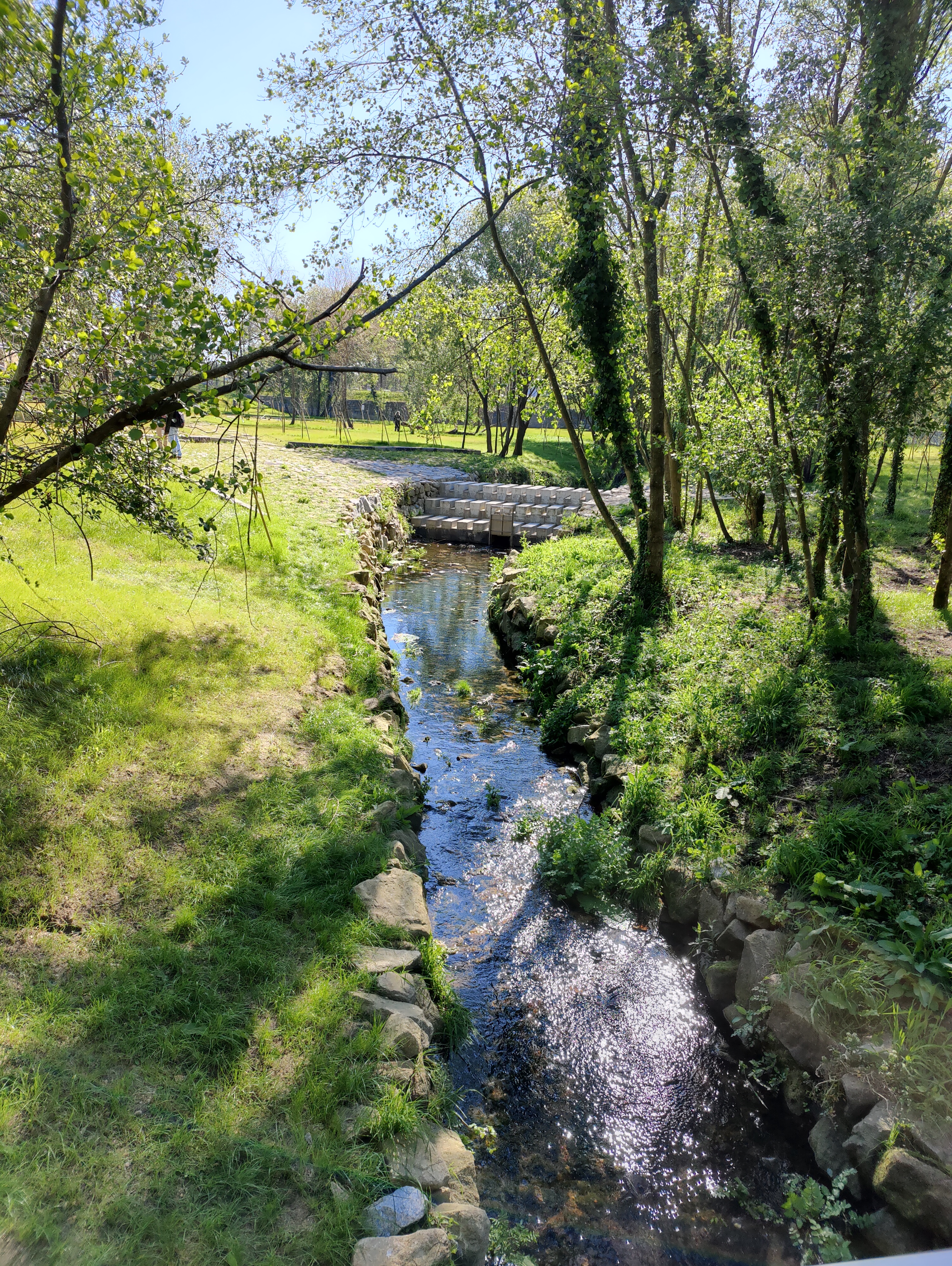
Porto
Beatriz Caitana
URBiNAT Co-Coordinator. Monitoring and Evaluation, Social & Solidarity Economy, Ethical Issues and Co-Production University of Coimbra, Centre for Social Studies (CES)
Beatriz is a sociologist and researcher at the Centre for Social Studies (CES) of the University of Coimbra (UC, Portugal). She is currently a member of the scientific coordination of the URBiNAT project, which focuses on the inclusive urban regeneration of social housing neighbourhoods of 7 European cities through the implementation of nature-based solutions in the public space, as a result of a co-creation process involving municipalities, stakeholders and the population of the intervention areas. She is also a member of CES’ study group on solidarity economy. PhD student at FEUC, her academic research focuses on alternative economies, namely social and solidarity economy, social incubation and co-production initiatives. Previously collaborated in the project PATHS – Youth for Solidarity Economy and Entrepreneurship in Europe, supported by the Erasmus + program, as well as in the Social Innovation Platform (PIS), supported by the Compete Programme and POA FSE/FCT. She is a founder member of the academic social incubator of the Faculty of Economics of the University of Coimbra (FEUC), and visiting professor in social and solidarity economy at the Polytechnic of Leiria (Portugal). Her professional background and areas of expertise also include the coordination of projects for national and international non-for-profit organizations in Brazil, dedicated to the promotion and defense of children and adolescents’ rights in various contexts, such as urban, indigenous and quilombola communities, as well as the development of social indicators, frameworks and tools for the the monitoring and evaluation of public policies for children. As a result, Beatriz’s academic and professional profile focuses both on social and solidarity economy, co-production, universities and incubation initiatives, and on childhood sociology, public policies and children’s rights.
Publications
[Policy Brief] Innovating with urban governance: municipal committees for inclusive, nature-based solutions
This policy brief explores the challenges and innovative opportunities for institutionalising participatory processes within municipal contexts. Specifically, we report on the creation of municipal committees, a proposal framed within the EU-funded project URBiNAT aimed at co-creating healthy corridors made up of a combination of nature-based solutions (NBS). The proposed committees aim to consolidate citizens’ engagement in the process of co-creating NBS, by offering opportunities for: cooperation and co-production between citizens, public authorities
and stakeholders; building consensus through possibilities to influence, negotiate and deliberate on decisions; handling emerging conflicts, dissensus and disagreement.
D1.5: Compilation and Analysis of Human Rights and Gender Issues
The present deliverable D1.5 is the first report aimed at compiling and analysing human rights and gender issues in the scope of URBiNAT's planning, implementation and evalutation of activities, covering the first year of the project, from June 2018 to May 2019.
NBS Expertise
[NBS Card] Cultural Mapping
Methodological tool in participatory planning and community development, it makes visible the ways that local cultural assets, stories, practices, relationships, memories, and rituals constitute places as meaningful locations.
Process of collecting, recording, analyzing and synthesizing information to describe the cultural resources, networks, links and patterns of usage of a given community or group, also strategically used to bring stakeholders into conversation.
Flexible according to the objectives, purpose and what one wants to map. E.g. facilities, organizations, stories of places, historical sites, for the past (memories and landmarks) or for the future (aspirational mapping), for the community or for outsiders.
It can be combined with approaches such as footprint of women (gender), forbidden cities (safety), asset-based community development (community assets), arts.
[PDF Download] Community-Based Monitoring
Tool for participatory decision-making improvement. It promotes an organized way of collecting ongoing or recurring information by residents, to be used by local governments and civil society, for planning, budgeting, and implementing local development programs, as well as for monitoring and evaluating their performance. Its activities cover community mapping, mobilization, capacity building, and information dissemination. Its benefits include:
- identification of problems and solutions in areas with fragmentation of needs and different vulnerable groups, which make it difficult to provide standardized solutions
- collective elaboration of simple and intuitive indicators
- contrast to lack of transparency and clientelism
- creation of relations of mutual trust between citizens and public officials
- awareness about policy-making helping citizens to understand the constraints of public action.
[NBS Card] Solidarity Markets and Fairs
In these spaces of conviviality products, knowledge and services manufactured by the own participants are exchanged using or not social currencies as intermediary mechanisms. These markets intensify the social dynamics through valuing the knowledge diversity from the community and creating a circuit of integration and economic autonomy. The markets/fairs contribute to a broader movement focused on rediscovery of the local and popular economy. It innovates by combining three distinct elements in the same space in society: the social ties of proximity, solidarity consumption and the use / occupation of public spaces. Into the markets we find the figure of the “prosumer” who refers to the person who is both consumer and producer. For the continued participation of community members, the markets can be implemented through a local residents’ committee and through activities beyond market spaces.


